Who created house? Where was house created? What’s the name of the first house track? Who’s the godfather of house?
The impetus of house music, the Chicago-created genre which can be loosely defined as electronic dance music featuring high tempo beats, has caused spirited debates that have raged on for decades.
Depending on the “house head,” the answers may differ.
For instance,“The Godfather of House” is one of four (or more) DJs/producers: Frankie Knuckles, Farley “Jackmaster” Funk, Ron Hardy, and Lil Louis.
According to some of the genre’s historians, the term “house” has its genesis in the Warehouse, an iconic former house music venue that received landmark status in 2023. Others point to early house parties hosted by LBGTQ+ community members in neighborhoods like South Shore.
The story told about house music’s birth by both local and national media outlets often finds its way to a musical and cultural flashpoint that took place during a 1979 doubleheader at the South Side’s Comiskey Park (today’s Guaranteed Rate Field).
A baseball promotion named “Disco Demolition Night,” where disco records were blown up, was celebrated by folks who reveled in rock music. Also, it became a symbol of hatred by folks who loved the genre, mainly Black people and people of color and the LGBTQ community. According to Vince Lawrence’s account, some of the records Comiskey Park staff members found weren’t of disco artists; many were the work of Black musicians in other genres.
In the years that followed, Chicago artists took disco records and played them at faster speeds, helping create house music’s iconic high tempo beats.
The origins of the Black musical genre and questions around credit and success were discussed at length at a Q&A session held in June by Lil Louis at the University of Chicago’s Logan Center for the Arts called “The Real History of House.” During the event, in which cell phones and audio recording was prohibited, he quizzed the crowd on their knowledge of local house music history.
One of the questions Lil Louis asked was about the birthplace of the genre. Many Chicagoans in the crowd shouted “Chicago.” One person yelled “New York.” In response, another person pushed back saying: “The lies you tell.”
Later on during the Q&A, Lil Louis and Kirk Townsend, who’s well-known in house circles for DJing Mendel Catholic High School’s (now Gwendolyn Brooks College Preparatory Academy) legendary parties in the mid-1980s, began to engage in a spirited debate over house’s first record.
Townsend is of the belief that Jesse Saunders’s 1984 track “On & On” was the genre’s first track. Lil Louis said it’s not. Lil Louis didn’t get into specifics, but many in the house community seem to believe that “On & On” was the first recorded house track. However, elements of the genre were present before the term was coined.
The Q&A was reminiscent of the late Chuck Roberts’ 2019 video for the track, “In the Beginning,” where dueling sides pleaded their case regarding the creation of house:
The Weekly spoke with artists, DJs, dancers, promoters, producers, record label executives, and party goers—who fashion themselves as “house heads”—to discuss house music’s past, present, and future.
Longtime house music DJ Lady D (her first paid gig was in 1995, she says) picked up DJing at an early age by learning the craft from her two older brothers in their Washington Heights home. While she understands house’s most pressing debate, she says the “culture” that birthed house predates the genre having an official name.
“Well, I think that debate is good as long as it’s based in fact… If you make an argument for something, you actually have to have facts. You have to have references” said Lady D. “You have to be able to back it up. Whether that be with statistics or metrics; actual documented things, right? But I would say some of the issues with house music is that it is a history based [on] the spoken word…
“I can say based on my own experience that I first started to hear about house music around 1981, 1982—not necessarily house music, but the culture of house. The culture of house is an umbrella with a lot of things. The way we danced, the way we dressed, the music that was listened to, and the way we partied—our ethos, what drove us to form a community.”
Roseland-born house impresario Braxton Holmes, who spun regularly at legendary house venues like The Clubhouse and is known for his work on tracks “People Everyday” and “12 Inches of Pleasure,” witnessed the back-and-forth between Lil Louis and Townsend. He said a lot of folks in the industry are resentful about not being the recipient of the credit they believe they deserve.
“I think we’re all getting older and people that were involved want their name to be known. I feel like everybody that deserves credit should get credit. And there’s a lot of people that deserve credit for the development of house music. It’s just not one,” said Holmes, a 1988 graduate of Mendel, the school’s last graduating class.
“A lot of people are seeing the end of the road. They want to be recognized. It was unfortunate, but I knew some of that drama was going to happen. … A lot of people in the early days of the music pretty much was robbed. Lots of people got paid off the backs of young Black Chicagoans…People still have to heal from past trauma and it’s coming out.”
“One thing my generation learned was to put out our own [music]. A lot of independent labels that were birthed from the fact that people got ripped off in the early days of house music,” said Holmes, who put out music on Cajual Records and acted as director of sales for The Clubhouse’s namesake label.
“For instance, Cajual Records. Cajmere [AKA Green Velvet] is the person who owns Cajual Records. So he just decided that he was going to take matters into his own hands and put out his own music. And a lot of us that came later learned about licensing and things like that. … We learned a lot from the pioneers getting screwed, so our business acumen was a lot better than the previous generation.”
In the 1980s, a big factor that served as a catalyst for the genre’s growth was its popularity in the gay Black community.
“A lot of the straight folks would come down to the gay clubs to listen to the music, especially underground clubs,” said house DJ Michael Ezebukwu. “There were a lot of different places that were out at the time. Up until the end of the ’80s, early ’90s, you could go someplace different every night a week.”
Frankie Knuckles was a prominent figure in house music. Known today by many as the “Godfather of House Music,” Knuckles was the resident DJ at the Warehouse nightclub in the West Loop from 1977 through the early 1980s. The club was an early focal point for Chicago’s Black and gay communities and considered a hotbed for the emergence of house music.
The late Knuckles, who worked until his death in 2014, said on the accepting nature of the genre: “House music is a church for the children fallen from grace.”
During this time, Ezebukwu DJ’ed at many spaces frequented by Chicago’s gay Black community, including Club LaRay, The Clubhouse and Rialto Tap.
“With straight clubs, it was more funk-based. There was a lot of funk and R&B in the Black gay clubs also, but crossing over more,” Ezebukwu said. “Gay folks were more into new music and straight folks more into music played on the radio. A lot of music played in the gay clubs you wouldn’t hear on the radio…When straight folks got into it, it’d spread like wildfire.”
North Kenwood artist Patric McCoy photographed much of his life during the 1980s, and last year curated an exhibit called “Patric McCoy: Take My Picture” that displayed daily photos he took mostly in 1985, including at the Rialto Tap in the South Loop.
“House music was a component of the scene in the gay community,” McCoy said.
By 1985, McCoy said the Rialto Tap had weekly house music nights, and the Power Plant and Music Box were established house venues.
“Cuts were played in places like Rialto, and Rialto would have nights that would be dedicated to [house] because a particular DJ would come in and people would flock to it and it was not exclusively gay,” McCoy said.
“The music affected them because it slowly changed the way people partied and danced within those spaces. It was a thing where there was no necessity for a partner, whereas with the previous music, R&B and so forth, people really didn’t just get up and dance by themselves.”
As house music spread throughout the ’80s, Ezebukwu also says the distinction between Black straight and gay spaces was not as explicit or exclusive as today. The biggest message across all groups was being yourself and having fun.
“After they got in the club, self expression was the thing. It was just a wild party,” Ezebukwu said. “It was a place to come, let your hair down, be yourself and be around folks that are like you and have the same kind of attitudes. Music was one of the unifying topics.”
Chatham-born DJ All the Way Kay doesn’t describe herself as a “house DJ,” she says she’s more of an “open format DJ,” which means she spins what the moment(s) calls for. She says she grew up listening to old house cassette tapes stemming from mixes on WBMX and WGCI.
All the Way Kay, who has honed DJ gigs consistently since 2004, says as a LGBTQ person, she primarily sought out venues that played the music she liked—not based on “gay” bars or clubs.
“Our preferences weren’t the most important thing. Really the most important thing was the music and the culture and the audience because we could find like-minded people within those spaces that existed outside of those spaces,” All the Way Kay said. “So you would represent yourself [by] the way you work, the way you wear your clothes, and the way you dress. And it would help you to identify people like you outside of those scenes because once we were in there—although we were making friends and having conversations—most of us were there to dance and be a part of the energy as a whole.”
As house music carried the momentum of the successes of the 1980s into the 1990s, Chicago artists began traveling overseas for international shows while forming local efforts that would be seminal for unity among house heads and create many of today’s house traditions.
Longtime DJ Wayne Williams founded the Chosen Few Disco Corp in 1977 and recruited local DJs to be members. This roster included his step brother Jesse Saunders, Tony Hatchett, Alan King, and Andre Hatchett. The classic group of five DJs performed as a collective before members began moving away from Chicago.
In 1989, the group reunited to perform at a Christmas dance party, and they considered hosting an annual reunion. In July 1990, the first Chosen Few Picnic was held behind the Museum of Science and Industry. “The first picnic was probably around fifty people. We were just playing football, softball, barbequing and playing some music,” Williams said.
“The following year and the following year, more and more people started coming. Then by the seventh or eighth year it had grown to like 1,000 people.”
After a “monsoon” downpour at the 1998 picnic led to some wet and wild partying, Williams said the word of mouth about the experience led to an exponential increase in attendance. The following year’s picnic drew around 4,000 attendees as the Chosen Few Picnic and cemented its place as a staple in Chicago culture.
During the 1990s, eventual Chosen Few member DJ Terry Hunter saw his career take off globally alongside other local acts. In 1990, Hunter, then a nineteen-year-old Chatham resident, released his first record, “Madness.” It was a hit in the United Kingdom and landed Hunter his first trip to London.
“It meant a lot to me, because in the ’80s when I was coming up as a DJ, as a teenager in high school, early on I knew I didn’t want to just be a local DJ,” Hunter said. “At that time, between ’87 and ’89, I figured out that to get out of Chicago you need to try to produce a track.”
As Hunter built a global career, he says that back home he saw the house scene going through a slow period as new acts tried to break through.
“It was a new scene, a new group of guys coming through in the ’90s. In Chicago, in my opinion, while those new guys were making their way they were changing the sound, but we in this city went through a very still period in house music. That’s how hip-hop was able to come through and flourish, because we as Chicagoans were stuck,” Hunter said.
He recounted how early anthems were so popular that it limited space for new music. “If it was not records that they heard before, disco records or old Chicago Trax Records… they didn’t want to hear it. It was very hard to play new music in the ’90s in Chicago for a very, very long time.”
Though new house music may have been stagnant in the clubs, new house songs were on the rise in national media. “Gypsy Woman (La da dee la da da)” by Crystal Waters peaked at #8 on the Billboard Hot 100. In 1992, “Percolator” by Cajmere reached #2 on the Billboard dance charts. Major labels began to invest in music videos and promotion for house artists.
Ultimately, Hunter said new audiences brought the genre out of the lull of the ’90s.
“Now, obviously, you can play disco music and classics here and they are going to love it, but crowds are more diverse,” Hunter said. “They’re younger. You have the older generation that is mixed all in there and every ethnic group that you can think about: Black, white, [Latinx], Asian, you name it. We’re partying together right now and they want new music.”
Hunter said that in the 2000s, the genre had realigned to a better position for new producers to flourish such as Masters at Work, David Morales, Mike Dunn, Maurice Joshua and himself to steadily release new music and travel.
A major point of contention at the Q&A was whether 2024 is the 40th anniversary of house. Many house heads believe that is not the case as other musical genres that later became known as house had their impetus well before 1984.
Beverly resident Ed Mothershed became a fan of house as a teen while growing up in Austin. His entry into house stems from listening to punk bands like Public Image Ltd and Bad Brains and industrial artists such as Nitzer Ebb.
“Everyone has their recollection of how things went… We keep saying ‘On & On’ was the first house song technically, and that’s what I understood when that was happening,” said the independent record producer.
“[‘On & On’] was the first recorded, but I agree with [Lil] Louis that house existed before that song… . I think this is a recorded technical thing that this is the first house song and I think that’s what I think the verbiage should be when people talk about that. I just think it’s a technical thing.”
“Something that stuck with me that Louis did say—and I think this is that same scenario—that when you’re out there busting your butt doing stuff, and you’re good at it, the popular people are the ones who will get recognized or who will be seen.”
Kathy Chaney, fifty-one, is a self proclaimed house head and was first exposed to the genre about forty years ago at age eleven. She recalls her older cousin listening to the music, attending parties at clubs and her later listening to house in her childhood best friend’s basement, before they were of age to visit clubs.
As an adolescent, she grew to love classics like “Fantasy Girl,” “Mr. Fingers,” and more or vinyl. She says the feeling was like no other.
“House music is just…you just can’t describe it. It’s soulful music, it’s beautiful, it’s everything. It’s just an indescribable feeling,” Chaney said. “I have been a house music fan—a house head, a true house head—since the beginning.”
As Chaney entered her teenage years she was still too young to attend major clubs like the Warehouse, but began attending house sets at Mendel, then led by the aforementioned Townsend. Entering her early twenties, Chaney, now off in college, would come back to Chicago to attend parties at De Joie’s near Merchandise Mart. It was at the now-defunct club where Chaney met her husband.
Decades later, Chaney, now a wife and mother, still regularly attends house events at 57th Street Beach’s Truth on the Beach, 31st Street Beach’s Pier 31, and other spots for roughly every day of the week. As she sees it, the legacy of house is unquestionable, as well as the influence disco had on the formation of the genre.
“[Disco] has a huge legacy because it’s part of the foundation, the fabric of the beginnings of house,” Chaney said. “I don’t think you can really talk about house with bringing in disco. You have to pay homage. You have to give that respect and pay that respect to disco.”
Cook County State’s Attorney Kim Foxx says she got into house as a student at Southern Illinois University-Carbondale. She discovered house as many of the Chicago-based creatives would DJ parties across the state. Since then, Foxx has made an appearance at the Chosen Few Picnic.
“If Mr. [former Cook County State’s Attorney Richard] Devine likes to listen to Frank Sinatra and someone saw him at a jazz club singing ‘My Way,’ it wouldn’t be a thing. I think, for us, our music and particularly our culture, not being appreciated by the mainstream until it’s co-opted is frustrating. And so for me to be able to say I am the State’s Attorney, I have this role, I have this position of power, and I’m a house head. And when there’s a big house festival on the South Side that celebrates us, of course I’m going to be there.”
She told the Weekly of a time she attended an event where Darcel Clark, the District Attorney for Bronx County (NY), whom she considers a friend, claimed house was created in New York City.
“Darcel had a number of us in the Bronx a couple of years ago, and we went to this club and they were, like, jamming Chicago house, ‘Jack My Body’ and other traditional Chicago house. And so I’m like: ‘Yo, I didn’t know New Yorkers were into house music. This woman, square in my face, was like, ‘New York originated house.’ I kid you not that I almost flipped the table,” Foxx said in jest during a phone interview.
“It is interesting to watch. People may claim this thing that I do think is uniquely Chicago that is universal, but sitting in that conversation I was highly offended that New Yorkers would have the audacity to claim the origins of house music.”
Mothershed said what makes house stand out from the other genres of music he grew up listening to is the camaraderie within the house community. He says he’s more interested in recognizing everyone’s contributions in making house as we know it instead of ongoing spirited debates.
“Some people I’ve seen [at parties] for thirty, forty years, I don’t even know their name,” Mothershed said. “We see each other in passing; lately in the past year I’ve been asking them their names and tell them: ‘Hey, I’ve been seeing you for like years. What is your name?’ …I think we should all give each other our due while we’re still around.”
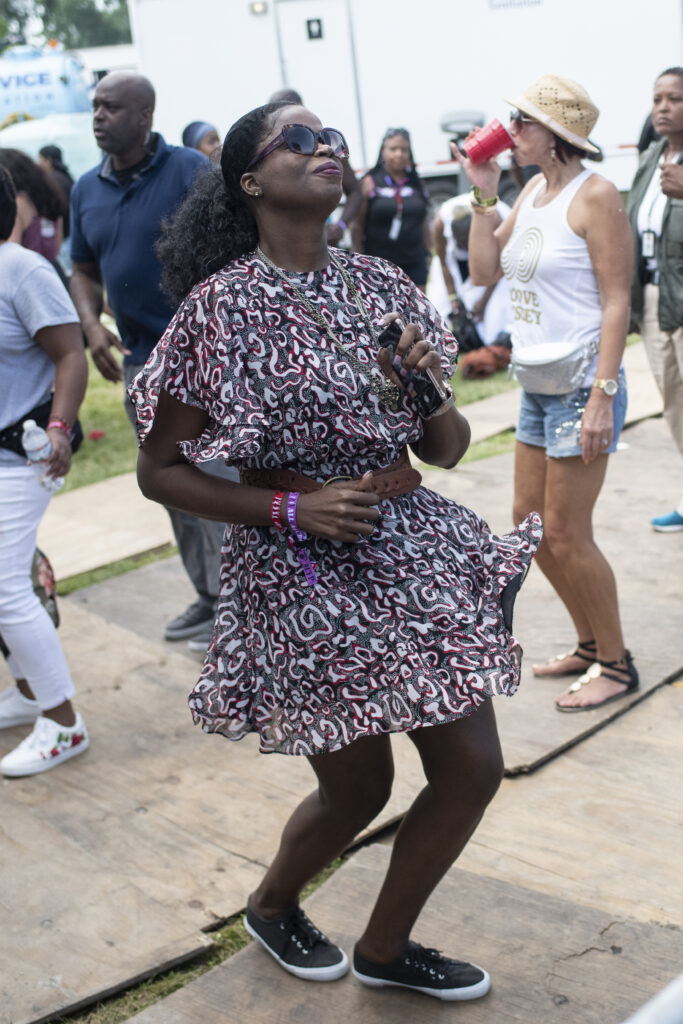
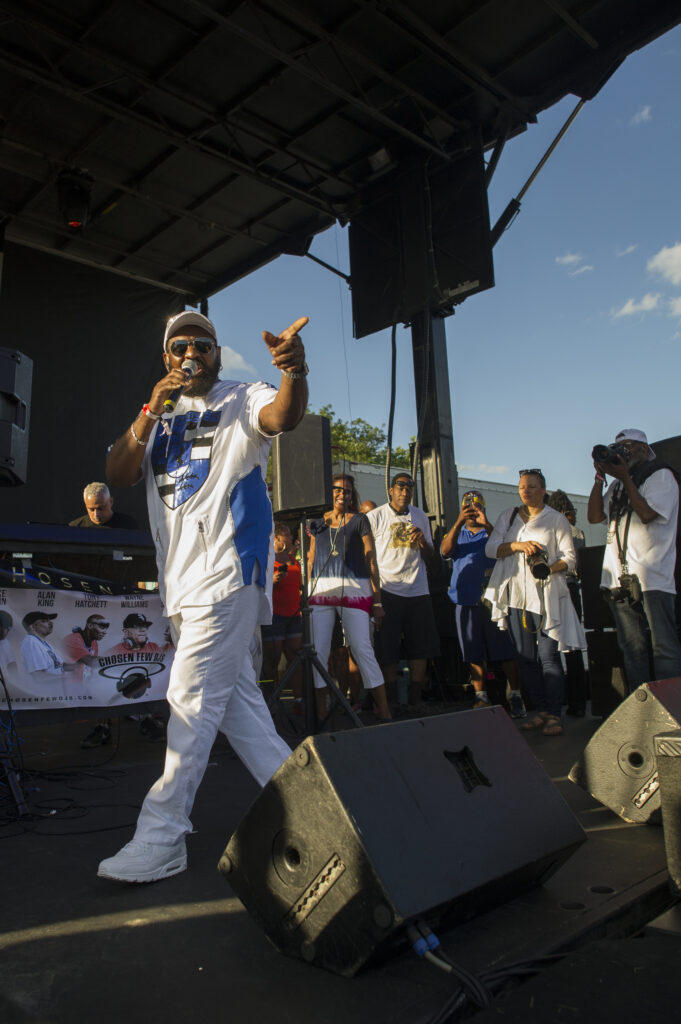
On July 13, tens of thousands of house heads converged on Jackson Park for the 32nd annual Chosen Few Picnic. Thumping bass, barbeque grills and Chicago’s top DJs reminded concertgoers of the staying power of the genre.
“House music is about love, unity and music and pretty much that’s it. And that’s what I think brings people together,” said Williams. “I think that’s enough, especially in a world where there’s a lot of crazy nonsense going on. It’s a safe place for people.”
Lady D echoes Williams’s sentiments regarding house’s longtime acceptance of all who enjoy the music. She also says that longtime house heads should move forward with uplifting the genre instead of rehashing decades-old arguments.
“I’m very encouraged by where house music is right now…Because of people who have dabbled in house like Drake and Beyoncé, it’s become a more commonplace term among young people—and that’s a good thing for house,” Lady D said. “I am encouraged because there are lots of young people who are now into house…They are really feeling house and really getting into it and starting their own crews and having their own events, their own parties, placemaking and creating space.”
“Old people who want to argue about the past, they can do that, but they’re missing out on the future.”
Evan F. Moore is an award-winning writer, author, DePaul University journalism adjunct instructor, and third-generation South Shore homeowner. Michael Liptrot is a staff writer for the Weekly and the Hyde Park Herald.


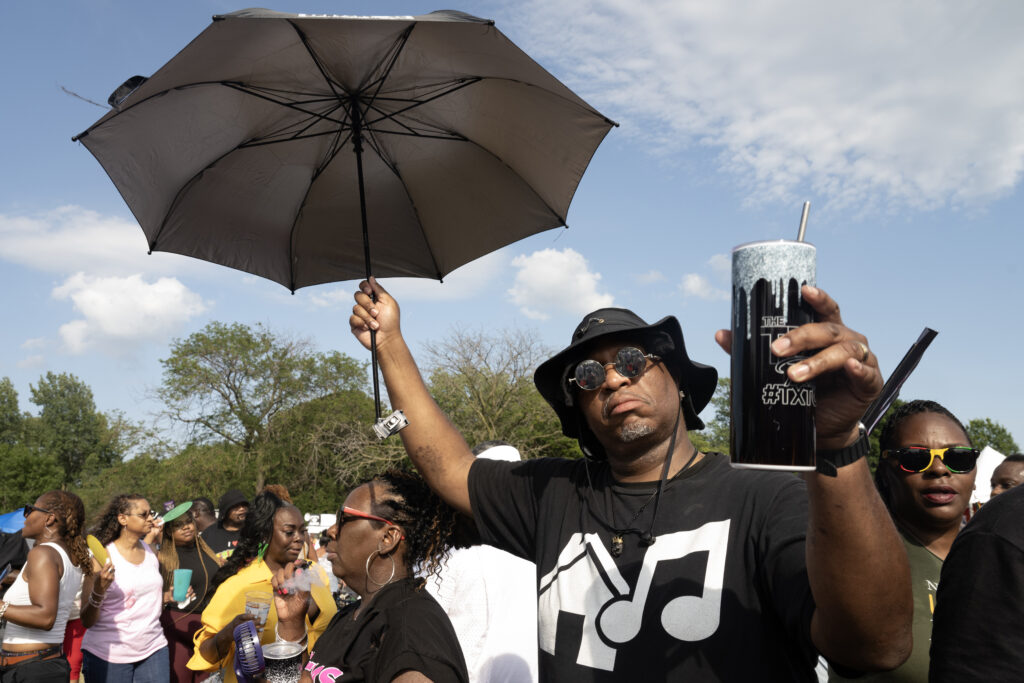
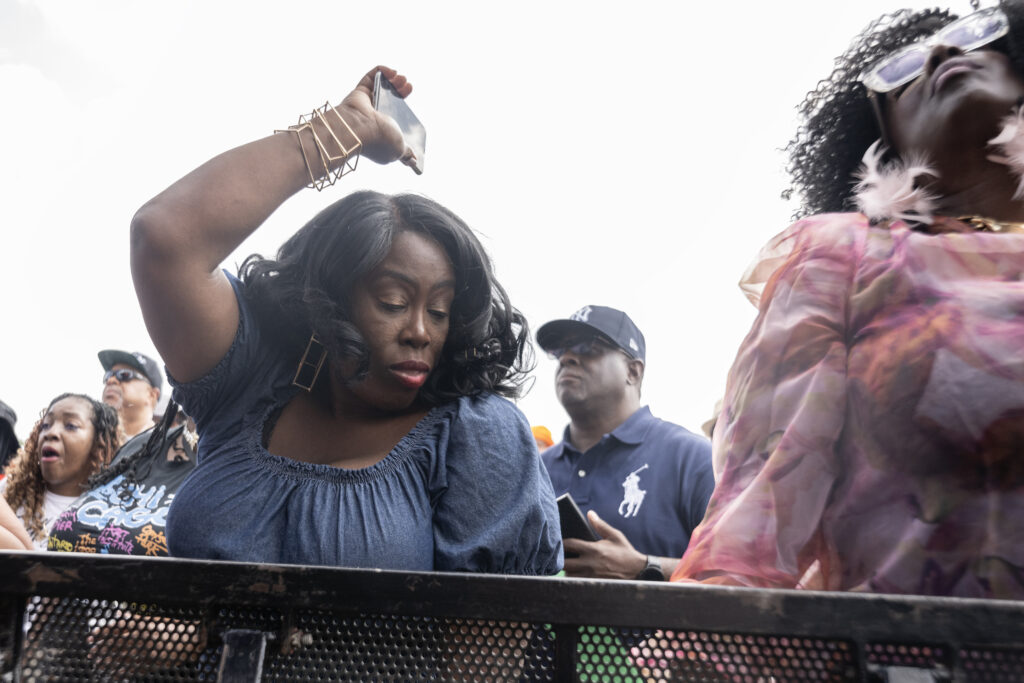
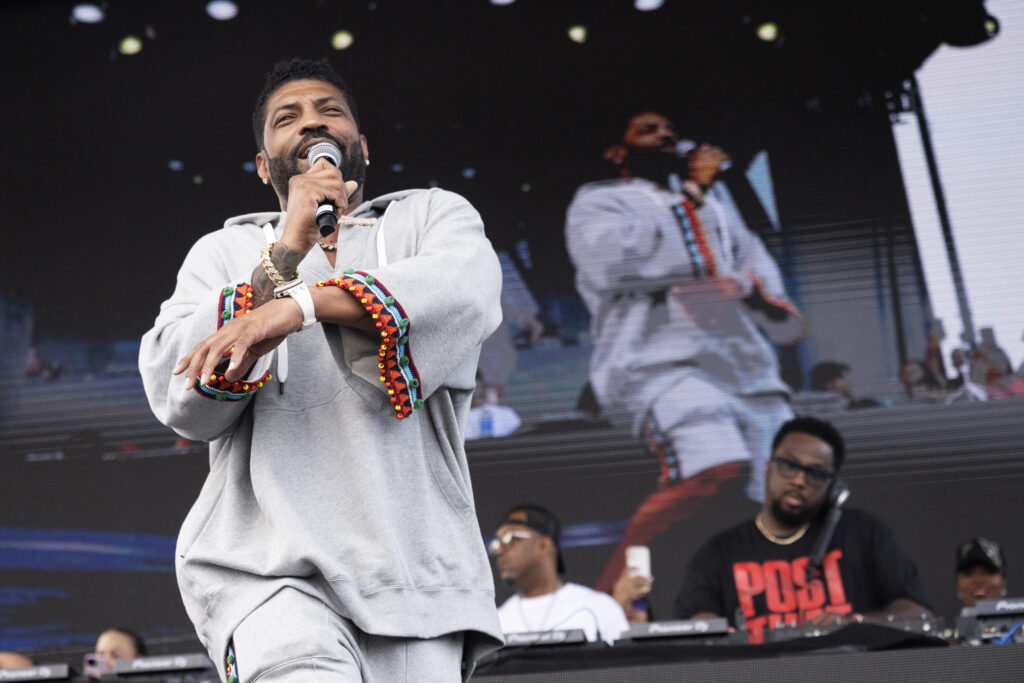
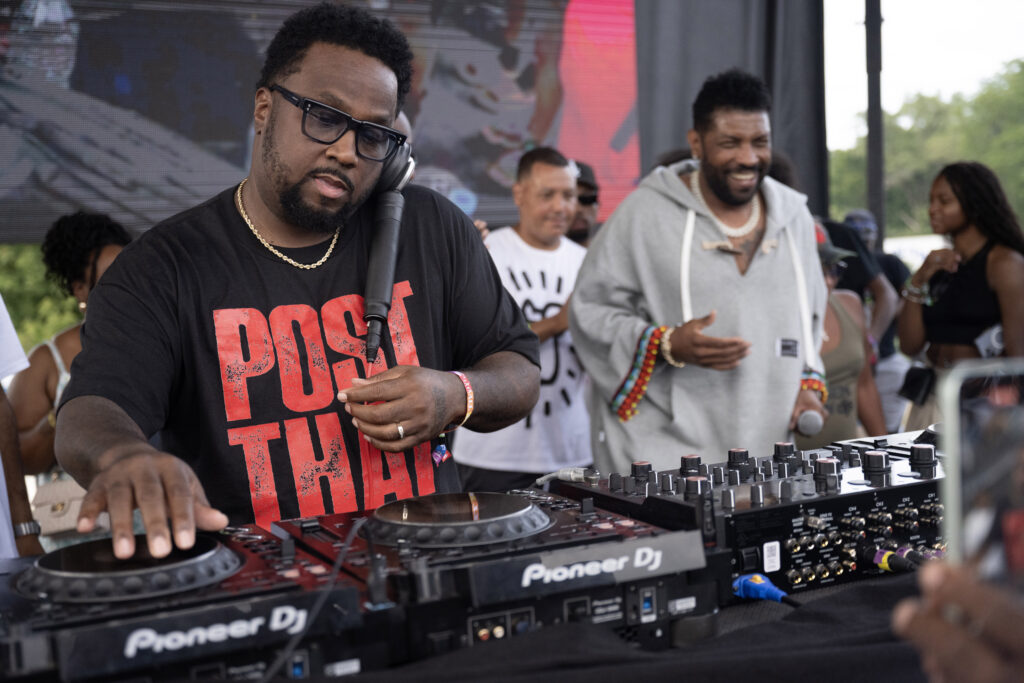
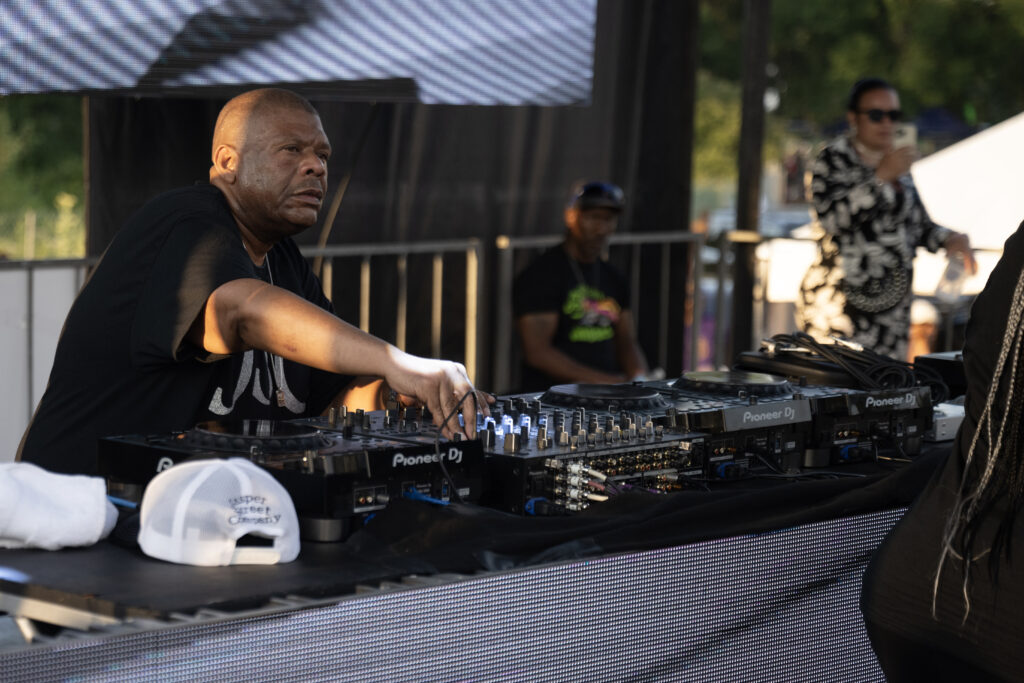
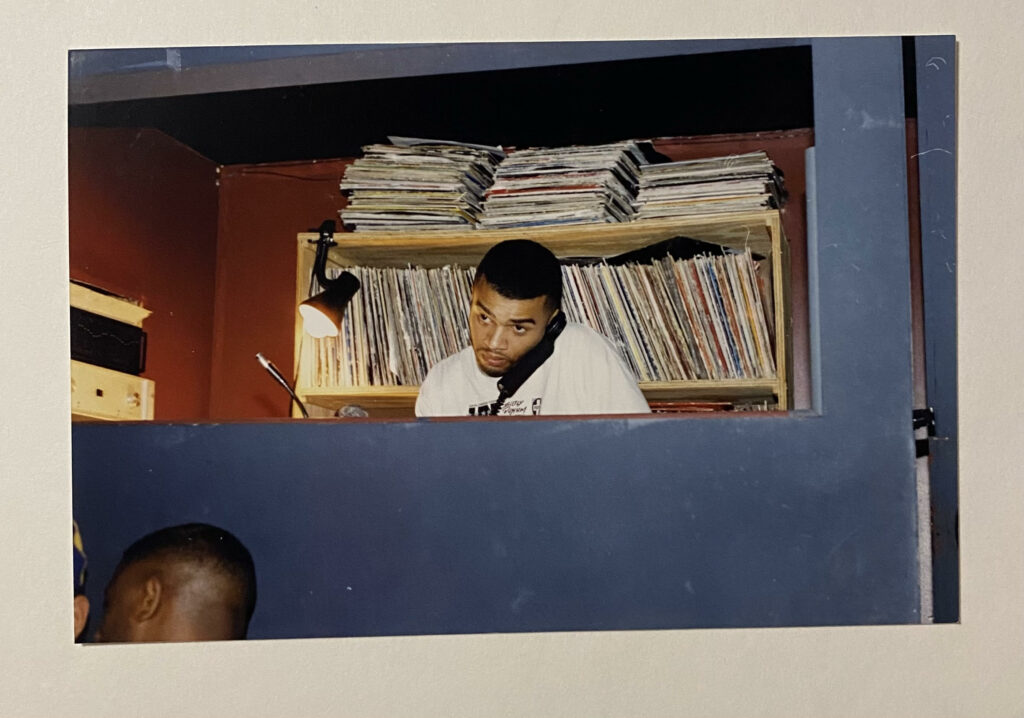
Really good and insightful article
I was involved in the production of early house with Steve and Farley. I was the first DJ to break house in NY, based on my friendship with Frankie, Steve, Ron and Farley, who sent me reels and acetates of unreleased house. I went on to produce hundreds of house records.
In my opinion the first record I regarded as house was 1980’s Stomp by Boyd Jarvis.
100% accurate; very few know this outside NYC.
I am the oldest house head at 71 to still able to dance like i’m 30. House music forever!!!
I have been a house head since the early 80’s would come to Chicago from ATL and fell in love with hse would go to the power plant my best friend and I would come out and sun would be out. I was well worth it!
I been house lover of music when I listening to listen to WBMX WGCI listening to Farley going to the warehouse, The underground Victor hotel The biz Mark hotel with the fabulous five exchange mixtapes with my friends Lee Pearson jr,dj Aki,Greg Gray Chris Nigelwe still exchange music to this day.
There’s only a small number of people who are willing to tell some “truths” about some of the stuff that went down in Chicago that people aren’t telling (for obvious reasons) and dis is where I get to bring some receipts with me when I publish my forthcoming book). Dis stuff is a lot deeper than people really know. ⏳⌛
“Romance”
All Dis Music
11:11
Ron Hardy is the father of house music. Den1 on state street was the first club I remember with a club on 39th(Pershing rd) 1976. I remember Ron playing clouds by Chaka Khan with thundering and lightning.
You forgot Steve Miggedly Maestro, Lady LaRhonda and Avicii(RIP)! Peace out.
The story of House Music is a mixed story of the culture and the genre. Songs considered House under the culture were called House as a term of endearment. This would be disco, italo dance, Philly Sound, rock, etc. These songs under those categories were also being played everywhere globally back in the late 70’s early 80’s and were comprised of multiple genres. The music that was recognized and embraced globally created in Chicago in 83-84 was the genre of House which wasn’t being played everywhere until it spread from Chicago outwards to other cities in the US and countries globally.
I always thought that house music was created and produced by “house aka resident DJ’s” mainly from Chicago. I remember hanging out in the clubs in NYC Underground mostly …so I am from the Bronx (born and raised) and in the mid 80’s my favorite record shops Downtown Records Rock and Soul etc. were like hey listen to this from Chicago and they were all independent labels… They call it “House Music” Jesse Saunders’s 1984 track “On & On” was part of the stack of records I purchased that day…so I would consider him a Pioneer and not the “first” all due respect of course. Lastly NY was not the birthplace of house but since all the major labels were and still are are from here…I confidently can say that we played a significant part in its growth with our seal of approval…with all due respect of course…Love Saves The Day.
House music is all about that person perspective and where they were at at that time , they are producers out there til this day that don’t get credit as pioneering all the House music you hear til this day . Check out on YouTube Everything House Music and more and hear the stories from the pioneers themselves .
The truth will be told you can’t erase certain people from house music, though you may try and one person you can’t erase is Larry Sherman. You can’t erase Trax Records. Some people may not like me because I feel they’re being racist and sexist being a woman in charge of a company since Larry has died has put me in a very precarious position, but the truth of the story is people who are trying to accuse me of taking their money, that is not fact and that is not true and people will learn that if people would bother reading Oli Coleman’s Rollingstone story they might know the truth! In the meantime, you can’t forget about dj international records either. It’s so funny. Did you read Jesse Saunders book? One of the things that Jessi mentions is that the song Fantasy, which I sang actually was recorded before ‘on and on’ so people can argue about what was first and there are many articles that say certain things but you can’t erase the years and years of press articles that have been written about House!!!! Do your homework looks things up….Also Ron Hardy deserves a lot more credit and I’m glad he’s going to get it. I worked with him at Trax Records and people can’t erase that either. Glad to see that Tessa Sherman now has part of her dad‘s legacy. It wasn’t easy, but I helped her out, and she deserves it. Many people in New York including Apache Ramos & Curtis Urbina know that I had a lot to do with bringing house music to the clubs there and to that city. But in a way you could say that house was partially from New York because after all, Frankie knuckles did come from New York to Chicago. Where? people. Also Hip house is an important component that people have all but erased and that’s something that Bambaataa and I first started that’s been noted historically. One of the people that I respect the most is Robert Williams, who both brought Frankie and Ron Hardy into their positions and one thing I love about Robert Williams, as he was always welcoming very welcoming to me, and he knew that it was important to have mixed crowds to make people like myself feel welcome and actually he always did and back in the day, everyone did I don’t know where all these changes happened but it’s all a recent thing.. anyway I’m sorry but just because I’m Caucasian I can’t be erased , and God bless all my friends in New York like Grandmaster Melle Mel, there is a person who’s in the rock ‘n’ roll Hall of Fame and could have a lot of things to complain about but Mel is the real deal and doesn’t need to complain! the truth is the truth and I love the hip-hop people because they’re real! the house people do nothing but fight each other, now that they’re fighting each other, they can move a little bit away from just fighting me. There are those that know the truth, and those that really know the truth should feel very disgraced and disgusted about the lies that they are spreading and there are so many unsung heroes that deserve credit. I hope their names are remembered and I hope that they get the credit that they deserve and I hope that this whole thing is blown wide open and that all the stories that have been written about House, come forward and come out in Books and that certain people who are trying to actually rewrite history are stopped from doing so. Most importantly, God bless all the new artists the fantastic new artist “late night Dub addict” “DBeat”, “ Jorge Cruz,” SAYTEK, And the many more from TRAX Records that are charting every day and God bless all of our fans all of you who have supported my music all these years and not forgotten about what I did and why I did it! Let’s not forget Mike Macherello from let’s dance record Pool. He had a lot to do with all this House music and he promoted all your records… God bless Farley if he hadn’t gone to the Mayor, he wouldn’t have even been featured at the 40th anniversary in millennium Park. A new chapter is being written by people who are not jaded and people who have love in their hearts people who were the way we used to be when we all worked together what happened? I don’t know what happened. I know I am willing and open and I wish that others would feel the same way.
I successfully promoted the first legendary straight party at Robert and Ziggy’s ‘The Warehouse’ like 1978-79 and the rest is history!! Ha!! I didn’t unveil that The Warehouse was a gay community to My constituents so when My Doctors/Mendel Bi-Level crowd showed up it caused an uproar socially ABOVE GROUND!! I’m not a DJ nor have I ever professed to be one but all the hoopla started right then and there!! DJ’s were not headliners back in them days it was all about Promoters or Social Clubs. Jesse even mentioned My ‘Blue Jean Disco’ in His book!! The Mendel Doctors introduced Wayne Williams Jesse and The Chosen Few DJ’s to the General Public supplanting Sweet K the DJ as The Doctors main DJ about 1977 because Wayne had a concept and We were Best Friends from grammar school and He always wanted to be a DJ. Wayne DJ’d the 1st Doctors Party and The first party Jesse ever DJ’d was also a Doctors Party at The Burning Spear but at the time people were listening to funk and R&B mostly. Tony Smith another Mendel graduate was promoting His party at The Warehouse taking place 2 weeks after Mines and it was off the chain!! Tony was a intern sort of to fellow ‘ELDER’ promoter Craig Thompson another Mendel Alumni of Playground fame. This is when everything started blossoming about 1978-1979!! To Me the name/word HOUSE is simply a derivative of the The WareHOUSE!! It’s a nickname and became a CULTURE that originated in Chicago!! Tony successfully took hold of it and ran with it!! I walked away eventually but I also gave the first ever party at what became to be known as The Loft!! I know because I was THERE!! Long Live The Doctors
I’ve seen a lot of places mentioned some I attended some I didn’t but one thing I can say is chicago was so peaceful back when I really started to truly embrace house music it just was a happier time for me I met a lot good people along the way and to all the djs respect.
I respect all the DJs,but we all are under an umbrella no matter how it started we were there dancing and enjoying ourselves,but I can say this Lil Louis,use to have Blacks and Hispanic in line to get in his partys down town places and I can remember seeing whites looking at us and wondering why we are down town in line blacks and Hispanic with no drama,Lil Louis also line up whites blacks and Hispanic at the north side club call Medusa with no drama we all was there to dance no matter wat u are, that was historic, not knocking the other djs, but we as dancers we supported…..all the way to now 2024 and plus…